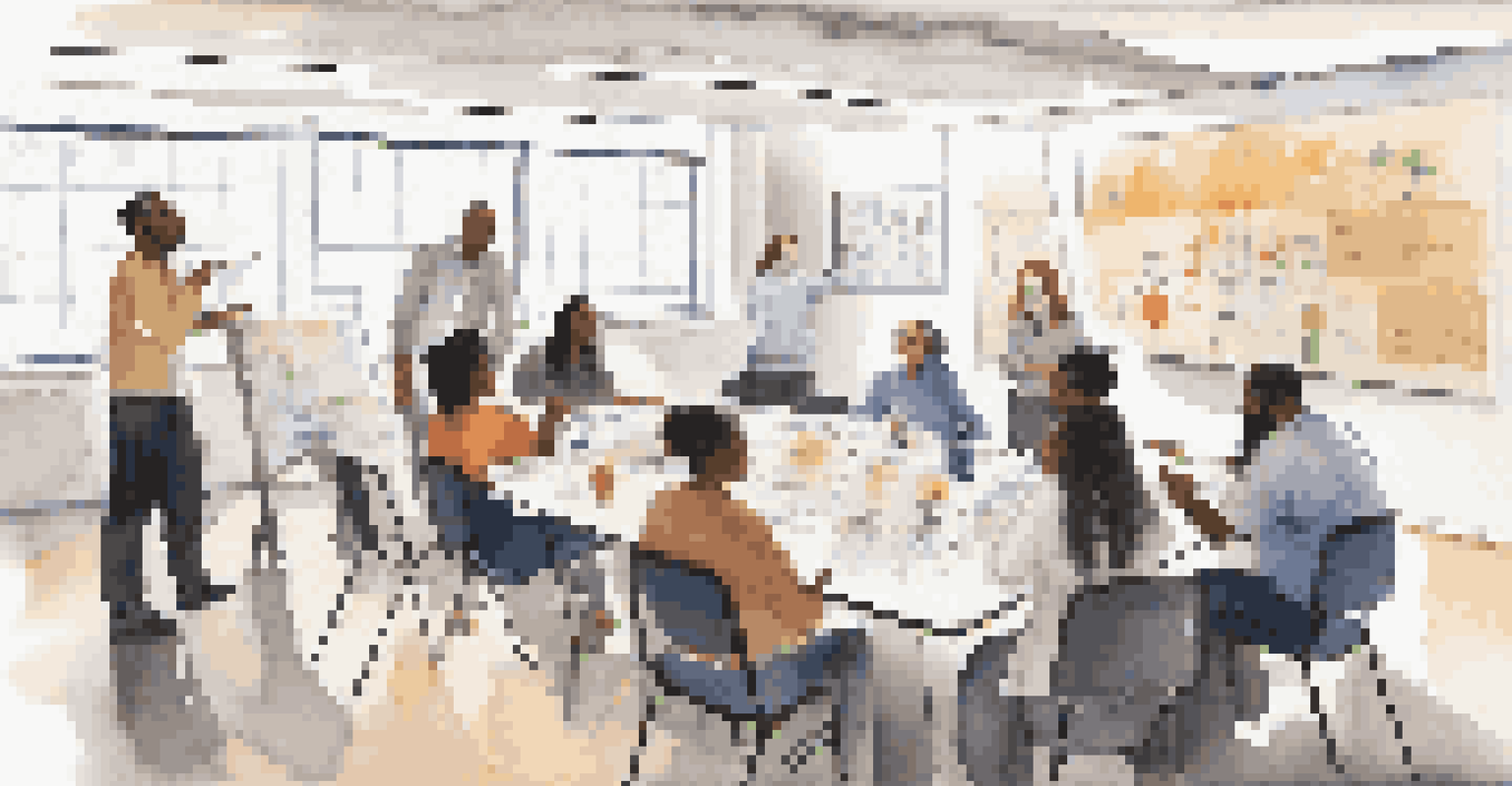Exploring the Role of Personal Empowerment in Pain Relief

Understanding Personal Empowerment in Health Management
Personal empowerment refers to the process of gaining control over one’s life and health. It involves recognizing one's ability to influence outcomes, especially when dealing with pain or chronic conditions. When individuals feel empowered, they are more likely to engage actively in their healing journey.
The greatest discovery of my generation is that a human being can alter his life by altering his attitudes.
This concept becomes crucial in pain management, as it encourages patients to take an active role in their treatment. Instead of feeling like passive recipients of care, empowered individuals advocate for their needs and preferences. This shift in attitude can lead to more tailored and effective pain relief strategies.
Moreover, personal empowerment can foster resilience, making it easier to cope with the challenges of chronic pain. Just like a tree that bends in the wind but doesn’t break, empowered individuals learn to adapt and navigate their pain experience more effectively.
The Mind-Body Connection in Pain Perception
The link between the mind and body is a powerful one, especially when it comes to pain perception. Research shows that our thoughts and emotions can significantly impact how we experience pain. For instance, stress and anxiety can amplify pain sensations, while positive thinking can dampen them.

By embracing personal empowerment, individuals can harness this mind-body connection to their advantage. Techniques such as mindfulness, meditation, and visualization can help cultivate a positive mindset. This shift not only reduces the perception of pain but also enhances overall well-being.
Imagine your mind as a thermostat that regulates your body’s response to pain. By adjusting your mental settings through empowerment, you can create a more comfortable internal environment, leading to better pain management.
Setting Personal Goals for Pain Management
Goal-setting is a vital part of personal empowerment, particularly in managing pain. By establishing clear, achievable goals, individuals can create a roadmap for their journey toward relief. These goals can range from simple daily activities to larger milestones, like returning to a favorite hobby.
Your present circumstances don’t determine where you can go; they merely determine where you start.
When individuals set personal goals, they gain a sense of ownership over their recovery process. This proactive approach fosters motivation and encourages persistence in the face of challenges. It transforms the pain narrative from one of victimhood to one of agency and determination.
Think of goal-setting as a compass guiding you through a dense forest. Each small step forward brings clarity, helps you navigate obstacles, and ultimately leads to a clearer path toward relief.
Building a Supportive Network for Empowerment
No one should navigate their pain journey alone. Building a supportive network is a crucial aspect of personal empowerment. Surrounding oneself with understanding friends, family, or support groups can provide the encouragement and validation needed to face pain challenges.
These connections can also offer practical advice and shared experiences, creating a sense of community. Knowing that others have walked similar paths can be incredibly reassuring and provide helpful strategies for managing pain. It’s like having a team of cheerleaders rooting for you every step of the way.
Additionally, healthcare professionals can play a vital role in this network. Collaborating with them to create a personalized pain management plan fosters trust and reinforces the sense of empowerment.
Incorporating Mindfulness and Relaxation Techniques
Mindfulness and relaxation techniques are powerful tools in the realm of personal empowerment. Practices such as deep breathing, yoga, and meditation can significantly reduce stress and tension, helping to alleviate pain. They encourage individuals to stay present and aware, shifting focus away from the discomfort.
By regularly incorporating these techniques, individuals strengthen their ability to cope with pain. Over time, this practice can lead to a decreased reliance on medication and other interventions. It’s a bit like learning to ride a bike—once you find your balance, the ride becomes smoother.
Moreover, these techniques can be tailored to individual preferences, making them accessible and enjoyable. Finding a routine that resonates with you can enhance your overall sense of empowerment.
The Role of Education in Personal Empowerment
Education plays a crucial role in fostering personal empowerment, especially in health management. Understanding one’s condition, treatment options, and coping strategies provides individuals with the knowledge they need to make informed decisions. This knowledge transforms uncertainty into confidence.
By learning about pain mechanisms and management techniques, individuals can challenge misconceptions and advocate for themselves. Empowered patients often have better communication with healthcare providers, leading to more effective treatments. It’s like having a map in a new city; the clearer the map, the easier the journey.
Additionally, educational resources can include workshops, books, or online courses designed to enhance pain management skills. The more informed an individual is, the more empowered they feel to take control of their health.
Celebrating Small Wins in Your Pain Journey
Celebrating small wins is an essential part of the personal empowerment process. Acknowledging and appreciating even the tiniest improvements can enhance motivation and reinforce positive behaviors. Each small victory serves as a stepping stone on the path to larger goals.
This practice encourages a positive mindset and helps shift focus from pain to progress. For instance, if someone manages to walk a little further than before, that achievement deserves recognition. It’s like planting seeds in a garden; with care and attention, they will blossom over time.

Moreover, sharing these victories with your support network can amplify the joy. Celebrating together fosters a sense of community and motivates everyone involved to continue striving for improvement.